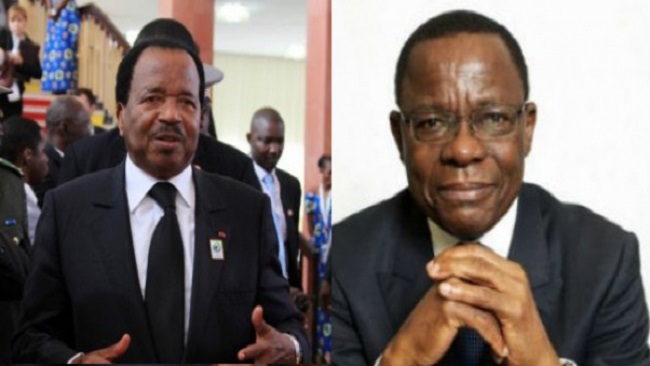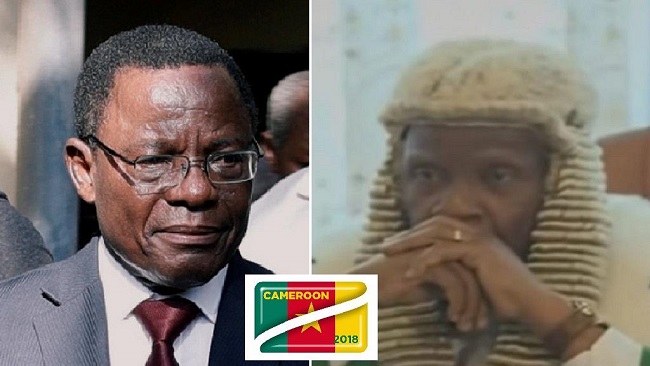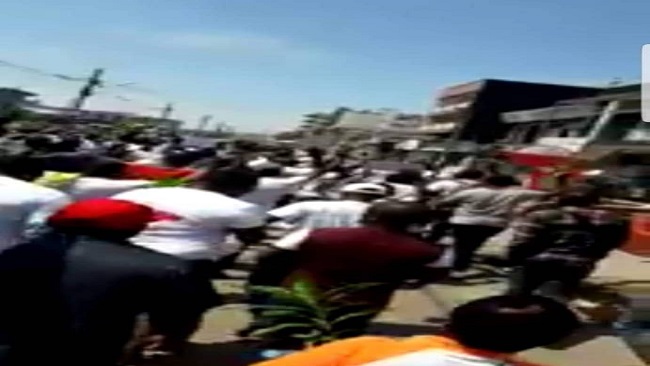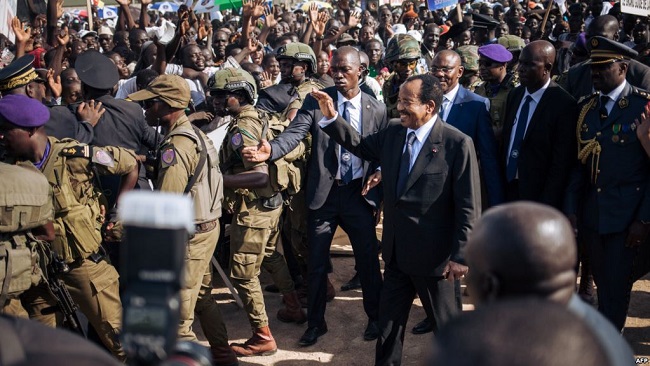7, February 2019
Francophone Crisis: Quotable Quotes -Minister Jean de Dieu Momo 0
“In Germany, there was a race of very rich people. They had enormous economic power. And they were so arrogant that the German people felt a little nervous. Then one day, a certain Hitler came to power and put these populations in gas chambers.”
Jean de Dieu Momo
Deputy Justice Minister
La Republique du Cameroun























10, February 2019
Southern Cameroons: Secretary Chris Anu’s departure is regrettable but acceptable 0
Yesterday’s resignation of Secretary Chris Anu from the Interim Government of Ambazonia as Secretary of State for Communication sent shock waves through the spine of the nation. The news was unanticipated. Secretary Chris Anu has been a great embodiment of our struggle. His passion and dedication to our struggle will never be forgotten. His trip to Nigeria when Sissiku Julius AyukTabe and his team were abducted in January 2018 put in motion the reaction and support we enjoyed from the UN and international media. His messages, full of passion connected the diaspora with ground zero. He was the voice of a new nation. His numerous interviews on international media, clearly articulated the Ambazonia plight.
As the dust settles on his shock departure, many have been asking why this course of action. Why now? This media group has been briefed from the heart of government that HE Sissiku Julius Ayuk Tabe has instructed the IG on courses of action to follow for the benefit of the struggle. Without getting into much detail on this issue, we have been allowed the information that Secretary Chris Anu questioned the mental health of HE Sissiku Ayuk Tabe, and the other leaders in jail as they have been in incarceration for over twelve months. We can report that at the meeting, Chris Anu uttered ‘‘you AyukTabe will not lead from jail’’.
Whilst we take the view that Secretary Chris Anu is right to raise any concerns he has in a democracy, it’s worth noting that Sissiku Ayuk Tabe is still the leader of our nation and still chairs and leads our Ambazonian government. As Secretary Chris Anu isn’t persuaded that HE Sissiku Ayuk Tabe should be leading this struggle at this point, it was regrettable but honourable for him to tender his resignation.
It can be argued that this struggle took a turn for the better when our leadership team was abducted in Nigeria. As a nation, we have become stronger and more resilient. This struggle is bigger than any individual. The struggle will lament his departure but the ancestors of Ambaland will bless us with another gifted Communication Secretary in the coming days
Cameroon Concord News Group readers voted for Chris Anu as Person of the year in 2018. Our editorial desk, reporters and readers around the globe would like to thank Chris Anu for his contribution to the Ambazonia struggle and wish him well in all his future endeavours. Our world is a better place because he served the Federal Republic of Ambazonia but the struggle we now face as a nation will continue.
Sessekou Asu Isong,
Cameroon Concord News Group, London Editor